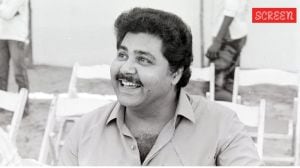Agents of Change
In far simpler times, “literary” was followed by “criticism” rather than “agent”. And then a young woman called Arundhati Roy won the Booker Prize — and we got familiar with the legend of Rahel, Estha and David Godwin.

Aravind Adiga left William Morris for David Godwin. We speak to literary agents on what they want and how much they want
In far simpler times, “literary” was followed by “criticism” rather than “agent”. And then a young woman called Arundhati Roy won the Booker Prize — and we got familiar with the legend of Rahel, Estha and David Godwin. It was a Cinderella story — of how Godwin, awed by Roy’s manuscript, booked a flight to India, signed her up and got her a million-dollar advance. The literary agent as godfather dawned on the scene and everyone with ink stain on their forefinger wanted one. Godwin was recently in the news after he snapped up this year’s Man Booker Prize winner Aravind Adiga as a client, even as the media reported a fracas between Adiga and his former literary agent. Adiga said he was unhappy with the way he was represented by Jay Mandel of William Morris, the world’s biggest literary talent agency.
A literary agent is slowly becoming a norm in Delhi, and writers are increasingly looking for one who would change their fate of Rs 25,000 advance. The Capital’s busy ones are Red Ink by Anuj Bahri that has been in the business since October 2006, and Osian’s — The Literary Agency that is 17 months old. Both of them get 15-20 per cent of the book deal between the author and the publisher.
Foreign agents are also in the game. A first-time author, who does not wish to be named, got so disillusioned with the quality of paperbacks and the quantity of advances coming out of Indian publishers that he promptly e-mailed his manuscript to an agency in New York. He says the agent takes 10 per cent of the profits, and adds that one has to pay more greenbacks to get the book edited. An initial critique of the manuscript alone costs about $100.
Renuka Chatterjee, senior vice-president of Osian’s — The Literary Agency, who has a list of 21 writers, says the first part of being an agent is pretty much the same as being an editor in a publishing house. “An agent is the author’s first reader. We do the first editing of the work. Once the manuscript is ready to submit, then we send it to various publishers. Rights are sold territory-wise, so we would send it to four-five publishers in India, and to publishers in the UK, US and countries in Europe and elsewhere. The decision of which publisher to give it to in a particular territory, depends on whether the advance and royalties they are offering are fair. So unless an author trusts you to do your best for him or her, it’s not going to work,” she says. Bahri and Chatterjee each receives over 100 manuscripts every month. Chatterjee, however, rues that 99 per cent of unsolicited work that she gets cannot be published. “But there is still that 1 per cent that might turn out to be brilliant, which is why none of us can afford to ignore the slush pile,” she says.
Chatterjee’s most recent success story is Karan Bajaj’s Keep off the Grass (HarperCollins), that has sold over 18,000 copies since June, and is now going into its fourth reprint in less than six months.
Many first-time authors these days make their way to Bahri Sons at Khan Market to meet Anuj Bahri, CEO of Red Ink. It handles over 40 authors in Delhi and beyond, including Canadian writer Shauna Singh Baldwin. “The building of an agency is a very slow process. It can take an agent 5-6 years to build a good list of writers and a sound reputation,” says Bahri, who adds that he hasn’t had acrimonious relations with his writers.
It is not just money, says writer Advaita Kala. “I think it is really important to be with an agent who cares about you and just doesn’t view you as a business proposition. Writing can be lonely and a lot of times the kind of advice you need is hard to come by,” says Kala whose romantic comedy Almost Single was published by HarperCollins in mid-2007. Once the foreign press got wind of the favourable reviews it received in India, Kala got noticed and had agents coming her way. Her New York-based agent finally got her book auctioned and Bantam Dell won the bid. They are now introducing Kala this February in their fiction programme called Bantam Discovery.
So getting a pen pal, dear writer, is not a bad idea.



- 01
- 02
- 03
- 04
- 05




























